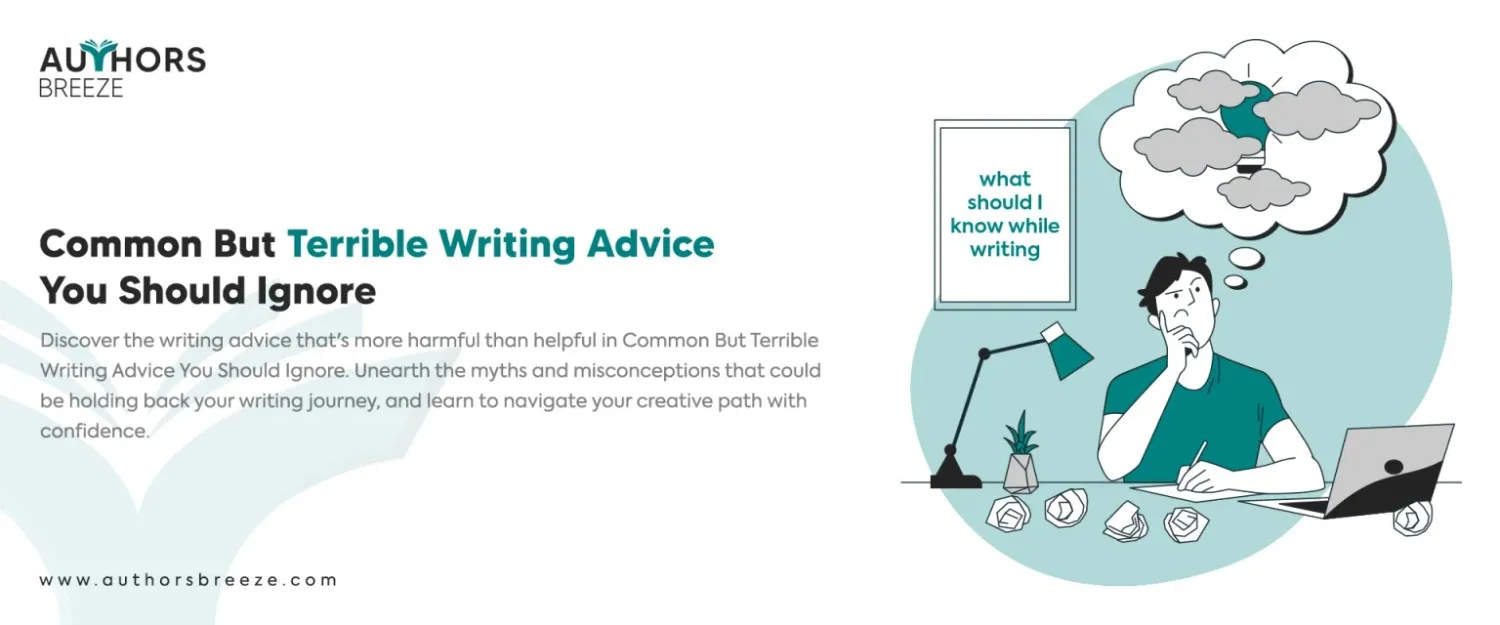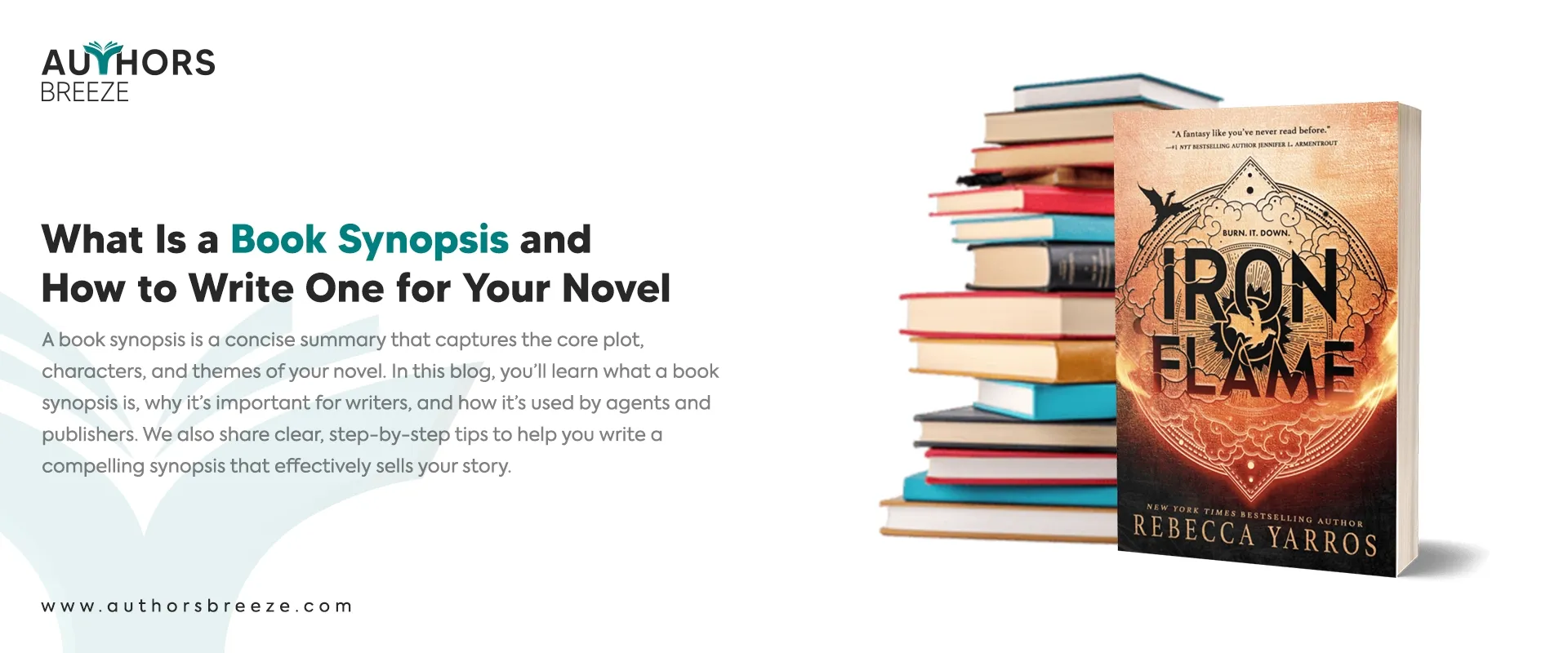Writing is a skill; similarly, in any craft, there’s a lot of advice out there. People love to give tips and tricks to help you become a better writer. But here’s the thing: not all advice is good advice. Some writing experts can give you terrible writing advice. As a result, it can actually make your writing worse if you follow them unthinkingly.
So, we are going to talk about some of the common but terrible writing advice that you should be careful about. In addition, we will explain why these tips might not always be helpful and what you can do instead to improve your writing.
What is Bad Writing?
Bad writing is dull writing. If your writing is:
- Unclear,
- Too hard to understand,
- Lacks excitement,
- Overly exaggerated,
- Pays no attention to readers,
- Has overused words, sentences, or elements,
- Lacks a point,
- And offers no value,
It is terrible writing. If readers don’t take an interest in reading it, it is not very good writing. Even the best writers make mistakes. They don’t just have rough first drafts. They also create poorly structured sentences, mess up verb tenses, and create long, confusing sentences. It is often simpler to spot errors in other people’s writing than in your own.
Therefore, you should learn to identify your own mistakes and areas where you can improve. It will make you a better writer. However, do not just follow any tips you get. There are many terrible writing advice out there. Let’s look at some of the terrible writing advice you should avoid.
Common Terrible Writing Advice Out There
1- Write Because You Love Writing
The advice to “write because you love writing, not for what it might get you” is excellent for those who want to be just an ordinary writer but not so great for everyone else. For most authors, it is terrible writing advice.
You should clarify that it’s not wrong to love writing and find joy. It can help you write a book if you genuinely enjoy writing daily. However, it’s not the only way to approach writing, especially for authors with specific goals.
The problem with the advice to write solely for the love of writing is that it can make authors feel that if they don’t have an overwhelming passion for every word they write, they’re doing it wrong. That’s not true.
Here’s the alternative advice you should follow. The primary reason you write is to achieve something through your writing. There’s no other reason to write, especially if you intend to publish your work. If you’re keeping a personal diary with no intention of sharing it, that’s perfectly fine. It’s valuable for personal reflection.
However, if you’re an author and want to write and publish a book, don’t focus solely on the love of writing. Writing is also a means to earn a living or gain recognition among their peers. Some may claim they write for the love of writing. However, in reality, they write to make money writing a book.
Whether you love writing or not, you should recognize that the core purpose of writing and publishing is to effect change in the world. It is because you want to alter people’s attitudes, perceptions, and behaviors or even transform your own life. That’s the real thing. You’re not just writing just because you love writing. That’s just an excuse. You’re writing because you want to bring change.
2- Write What You Know
When people say, “Write what you know,” they mean you should stick to topics and experiences you’re familiar with. But this can limit you as a writer because it keeps you in your comfort zone. Your writing may become repetitive and fail to explore new ideas or worlds.
So, instead of only writing about what you’ve experienced firsthand, you can use research and your creative power to jump into new subjects. Research allows you to learn about topics you are not familiar with. At the same time, your creativity can help you create solid and engaging stories even in unfamiliar settings.
3- Do Writing Exercises
The best way to become a better writer is by actually writing. It is true. However, if you do random writing exercises without anyone to provide feedback, it won’t be beneficial.
In order to improve your writing on your own, you can try using tools like Grammarly and the Hemingway App. Just paste what you write into it, and it will highlight areas that need improvement. While it may not be perfect, these are helpful tools to make your writing clearer and more direct.
4- Show, Don’t Tell
“Show, Don’t Tell” is a typical writing rule. It suggests that you should use descriptive language and actions to reveal emotions and details rather than just stating them. However, it is essential to keep a balance between showing and telling. If you overuse one at the expense of the other, it can affect the pace and engagement of your story.
Sometimes, telling is more efficient and effective. Especially when you want to convey simple details or when the pace of your story needs to move quickly. For instance, suppose you want to introduce background information or summarize events. In that case, telling can save time and keep your narrative flowing.
5- Jump into Writing and Worry Later
The advice can work for certain types of writing, especially if you need to get started quickly. It can help you disassociate from your initial fears and start writing. It is effective for creative blog writing or shorter pieces like anecdotes or short stories. However, if you want to write an ebook, this approach has drawbacks and can be terrible writing advice.
Writing a book is a long-term commitment that requires daily dedication over an extended period. Ignoring your fears and emotions for an extended duration is not sustainable. These fears will catch up with you. It will potentially lead to writer’s block or other challenges that can hinder your progress. This is particularly true for writing a nonfiction book, where you’re sharing your thoughts and ideas in a vulnerable manner.
A more effective approach is to acknowledge your fears and insecurities rather than push them aside. You don’t have to eliminate these fears entirely because they are a natural part of the writing process. Instead, you should face them head-on each time they arise. If you acknowledge and confront them, it will help you address and navigate your fears as an integral part of your writing journey.
6- Consider Joining a Writing Group
You can join a writing group. It can be beneficial, but it depends on the quality of the group. If you decide to join one, you need to find a group moderated by someone who is a more skilled and professional writer than you.
Not all writers make good writing groups. Having degrees in literature or an extensive vocabulary doesn’t always translate to excellent writing skills or make someone a great writer. In fact, it can sometimes be a hindrance.
What you want in a group moderator is someone whose writing is clear, direct, and captivating. When they write something, you can’t stop reading it. You might check out a sentence or two of their work and find yourself engrossed two chapters later. That’s the sign of a good writer.
If you’re searching for a good writing group, regardless of the group you choose, ensure that the leader is not only a good writer but also a good teacher. They don’t have to be as famous as William Shakespeare. However, they should be better than you if you want to benefit from the experience.
7- Write Every Day
The idea of writing every single day can put immense pressure on writers. Life is filled with responsibilities and jobs that make it challenging to maintain a daily writing routine. This pressure can lead to burnout and frustration.
Quality is paramount in writing. If you simply write every day for the sake of it, it may not result in meaningful or polished work. Therefore, it is better to focus on the quality of your writing and take the time to craft and revise your work to make it the best it can be.
8- Write When You Get Inspiration
The advice to “write when you’re inspired” is not the best guidance for authors. It is like saying to a musician that you can become a skilled musician if you only practice when you’re in the mood to play your instrument. They might make some progress from time to time. But those who want to truly excel at music practice regularly, even on days when they don’t feel particularly inspired.
Similarly, if you only write when you get inspiration, you might rarely write. Also, when you do, your writing may cover topics that are not even connected. In addition, you should grant yourself permission to write average material at times. Every author makes progress from moderate writing to excellence. So, write your ideas down, even if they don’t feel inspired.
Inspiration is valuable. So you should harness it when it strikes. It is likely to go away quickly. However, you can’t solely rely on it. You can’t wait for inspiration to write. You must make writing a regular practice.
9- Avoid Adverbs
Adverbs are words that modify other adverbs, verbs, or adjectives. They are often criticized as they are not necessary or can weaken your writing. However, you should know and recognize that the use of adverbs is dependent on context. Not all adverbs are bad. In addition, some can enhance your writing when you use them appropriately.
So, you should not entirely avoid adverbs but rather use them thoughtfully to strengthen your writing. Avoiding adverbs is terrible writing advice. Understand their nature and employ them with care. It can improve the quality of your prose.
10- Write for the Market
When you write solely to cater to market trends, you might sacrifice your authenticity as a writer. Trends can be lucrative. But if you chase them too unthinkingly, it can lead to work that lacks originality and passion. Your writing may become a product rather than a genuine expression of your creativity.
Every writer has a unique voice and perspective to offer. So, you should discover and nurture your own voice, which sets you apart from others in the industry. Often, authenticity and originality are what make writers stand out. It attracts readers who appreciate their distinct writing styles.
You should be aware of market trends. However, your authenticity and unique voice as a writer should always take precedence. Make sure to balance market considerations with your personal passion. It can help you create work that is not only relevant but also deeply meaningful to you and your readers.
“Market Your Book and Increase Your Visibility
Our book marketing services can help you reach a wider audience and turn your passion into a successful writing career.
Hire a Book Marketer”
11- Don’t Use Passive Voice
Passive voice is a grammatical voice construction where the subject of a sentence receives the action rather than performing it. It often involves the use of auxiliary verbs like “is,” “was,” or “has been.” For example, “The book was read by her”. The sentence is in passive voice because the book is the receiver of the action.
Keep in mind that an active voice is generally preferred for its clarity and directness. On the other hand, the passive voice has its place in certain situations. The key is to be conscious and judicious when you use it. Also, make sure to always prioritize clarity and effective communication in your writing.
12- Write the Perfect First Draft
Many writers believe that their first draft must be flawless and perfect from the start. This is a common misconception and really terrible writing advice. In reality, first drafts are typically messy, full of mistakes, and far from perfect. You should not expect perfection in your initial attempt. If you do, it can create unnecessary pressure and stifle your creativity.
Writing is an iterative process. Your first draft is like the raw material. Then, the revision is where you refine and shape it into something polished. So, let go of the myth of the perfect first draft. Grab the idea that writing is a process where you improve continuously through revision and editing.
13- Write What Sells
It can tempt you to chase trends in your writing, but it comes with limitations. Trends are often short-lived. Hence, if you try to keep up, it can lead to shallow or uninspired work. In addition, the market is constantly changing. As a result, it can be challenging for you to predict what will sell.
If you write from your passion, it allows you to create authentic and meaningful work that resonates with readers on a deeper level. Try to write about subjects you’re passionate about. As a result, you will stay motivated and committed to your craft over the long term.
Your passion can infuse your writing with a unique voice and perspective. It sets you apart from others in the market. Also, suppose you want to build a writing career based on your passion. In that case, it can lead to sustained success, as your work reflects your genuine interests and expertise.
We all know that it is essential to be aware of market trends. But you should use this knowledge as a reference rather than a strict guideline. In that case, you can consider a hybrid approach. You can write what you’re passionate about. On the other hand, you can also explore ways to make your work marketable. In order to do that, you need to find unique angles or niches within your interests.
You should be aware of every industry change, but you should not force yourself to follow every trend. Trust your instincts and make decisions about which trends align with your passions. You can seek feedback from peers and beta readers who can provide insights into the marketability and appeal of your work.
14- Outline is Necessary
Many people find that using an outline is generally a good idea. However, it is essential to recognize that it is not an absolute requirement or the only way to write well. Some experts will give you this terrible writing advice and insist that no one can succeed without an outline, but this is not sound advice. If you prefer not to use an outline and want to dive right into writing, that’s entirely acceptable. Moreover, you shouldn’t let anyone tell you otherwise.
Outlining is a common and helpful practice. However, there is no one-size-fits-all approach to writing. Some writers thrive without a detailed outline. It allows their creativity to flow more freely as they write. It may not be the most common approach, but everyone has their own unique writing process. So, what works best can vary from person to person.
15- Prefer Simplicity Over Complexity In Your Word Choice
This advice has its merits. But you need to know that writing shouldn’t be overly simplistic. It is true that clarity is vital in writing. However, using longer words or sentences can be necessary to convey complex ideas or add depth to your work.
If you overuse short and simple words, it can make your writing feel monotonous and uninspiring. A well-crafted piece of content often involves a variety of sentence lengths and word choices to engage the reader effectively.
Suppose someone has given you this terrible writing advice and discouraged you from using longer words or sentences. In that case, it might be due to their preference for simplicity or a lack of confidence in handling more complex language. However, you should not limit your writing based solely on this advice. You need to balance simplicity with sophistication. It is vital in order to create engaging and dynamic prose.
Frequently Asked Questions (FAQs)
Why am I So Bad at Writing?
If your writing is terrible and lacks a smooth flow, it could be due to a lack of in-depth research. To improve, focus, and thoroughly understand the subjects in your area of expertise. Build a solid knowledge base in your niche, and you will be better equipped to write effectively. In addition, do research and accumulate knowledge extensively in your field. As a result, it can help speed up your writing process and enhance the quality of your work.
Why is My Writing So Poor?
Your writing might not be excellent because you might not have fully grasped the art of writing. In your attempt to sound like a writer, you overloaded your story with unnecessary details and fell into the trap of using cliches. Poor writing often results from not editing it properly.
Which is the Best Advice for Writing Your First Draft?
You will find many pieces of terrible writing advice when it comes to the first draft. However, one of the effective pieces of advice for writing your first draft is to write your ideas first and edit and polish them later.
Conclusion
As we’ve explored, writing tips are abundant, but not all of it is equally valuable. You can get terrible writing advice from experts, too. Therefore, you should approach any advice you get with a critical mind. Consider the context, the source, and how the tip aligns with your unique writing goals and style. Don’t follow advice randomly without even a second thought. Instead, use it as a tool to enhance your skills and make informed choices.
As a writer, you quickly discover that everyone has tips to offer. But much of them are really terrible writing advice. At Authors Breeze, we’ve provided numerous authors with ebook writing services and helped them draft, complete, and publish their books. Interestingly, they achieved success not by following much of the conventional wisdom. This experience highlights the importance of discerning terrible writing advice.






